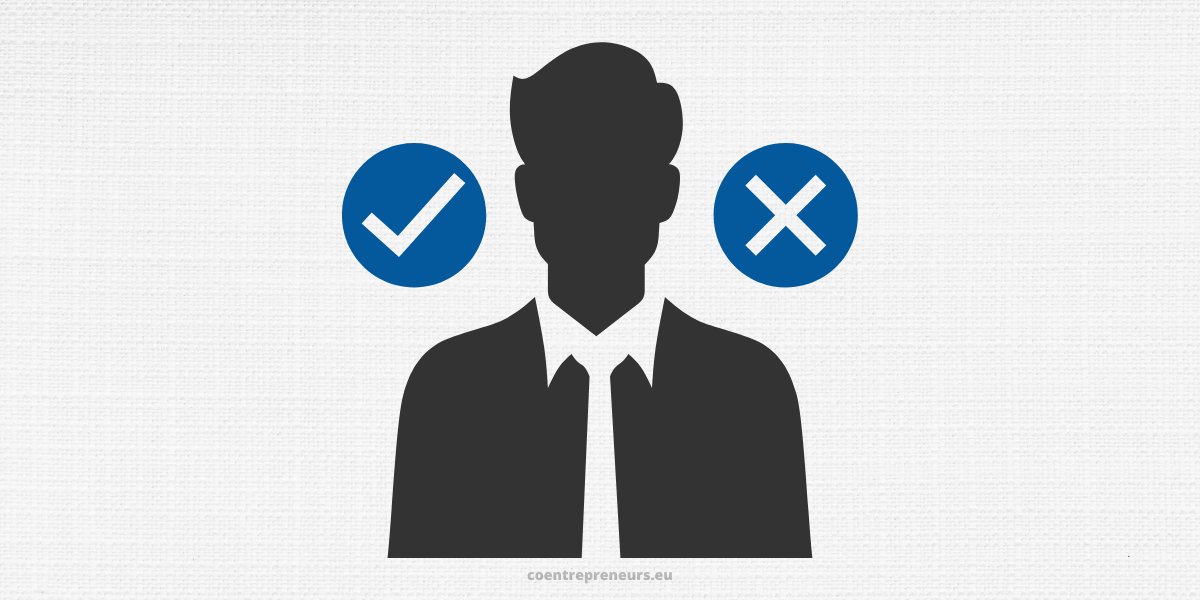
Entrepreneurs want to be successful. You probably already know that the best entrepreneurs can make quick decisions. Successful people know how to master decision making and risk taking. It is important to be able say, “Do I do it now or not?” Do I push on, stop pushing, change my gears, or continue to go forward? This can be especially daunting for a new entrepreneur. These strategies will help you make confident decisions immediately – action leads to results.
Get a jump start by leveraging the experience of others
It is often beneficial to look at the success of others, as well as your own. This is what successful people do. They don’t simply study the experiences of one person and decide, “Well, whatever errors they made, they won’t make. Whatever things they did right, they’ll do.” They instead study the lives of 50 successful people. Then they look at the failures of successful people and come up with a pattern. This pattern is used when they’re ready to make a decision. You can now think: “OK, I read that this happened in 1973, but it didn’t work in 1979, so what’s the difference?” What are the chances that this will work in my business? This is when you take into consideration the experiences of others…
If your own experience bucket is small, you can add other people’s experiences to it.
Be confident in your own decisions
Peyton Manning was just arriving to Denver Broncos, and they played about 3-4 games. Someone asked him a question about a game. His response was something that impacted me greatly. I still think about it from time to time, especially in difficult situations. His comment was something along the lines of “Well, as you make mistakes together, and as you perform different plays under different challenging situations, we have these experiences in our memories.” When we are faced with a new situation, and don’t know how to respond, we can all look back at our past successes and failures. We’ll do better as a group. Although he was more concise than that, that is the idea. This is how I think about risk taking and decision making. I can look back at my successes and fails, and also look at the successes and mistakes of others.
Let’s get back to the point: experience and failure are key factors. You can evaluate the next step more accurately as you gain more experience and have more failures. You might be thinking, “I don’t have any experience and I’ve never been unsuccessful, so what do I do?”
The blank slate is yours, which means you don’t know what the odds of success or failure. This could lead to some people freezing and doing nothing. Problem is that if you don’t have any experience, and you freeze and do not do anything, then you won’t have any experience.
You might look at it differently. Therefore, to be able to rely on my own experiences and learn from them, I need to have a few successes.
If that is the case, one might ask, “Does failure matter?” Is it worth it if something fails after you’ve tried it for a month or a day? It doesn’t matter if it fails. It doesn’t matter if it succeeds, my opinion.
This means that even if you make a wrong decision, it doesn’t matter if you are right or wrong. This is just another way to add to your experience. Tomorrow, you will make another decision. It doesn’t matter whether you are right or wrong. You just add to your experience bucket.
Assess Your Decisions
It doesn’t matter whether you make 60 decisions within the next 60-days, or if each one fails. It doesn’t matter. It’s just another thing to add to your experience bucket. You can go back 60 days and see patterns.
You must stop and evaluate 60 decisions at once. Take a look at how your decisions turned out. You might ask your best friend for help, or your worst enemy. You might do some coaching or you may sit down with someone older and wiser and share your failures.
You’ll probably see a pattern in your failures, even if you’re discussing them with another person. Then you can ask “What was the difference between failures that were worse or better?”
Some things may be so successful that you look back and say, “Day 3 was not a disaster compared to my epic failure of day 57.” Some things may be reclassified as failures if they didn’t last long enough. The idea is that you are just filling a bucket of experience.
This is how to get started. This is how you can use the first shortcut I shared: study great people and take their experiences as a jumping off point. Don’t stop there. You can make your own decisions. It doesn’t really matter if your initial decisions are good or bad. You just need to get started. You should set a time frame for how long you will be working on your initial plan. Then, take a moment to evaluate your experience bucket. Next, study the experiences of others. Include your own experiences. Try again. Make decisions. Your plan should be implemented. Then evaluate. This is how you can gain the confidence and knowledge necessary to make informed business decisions.
